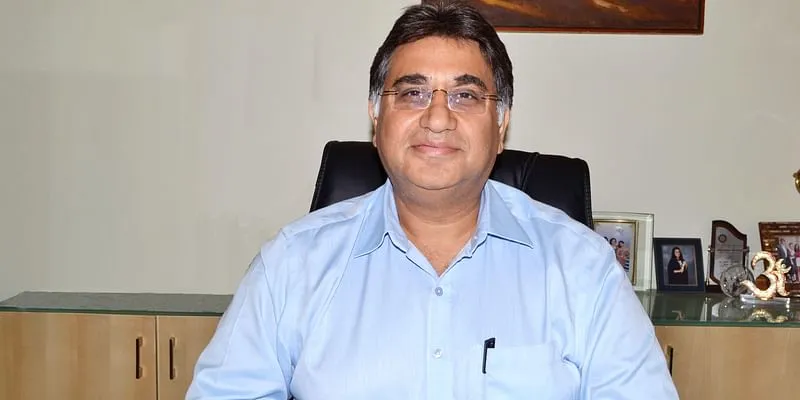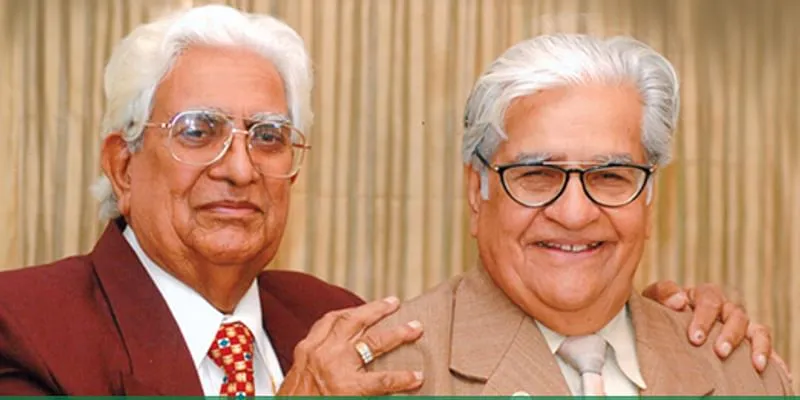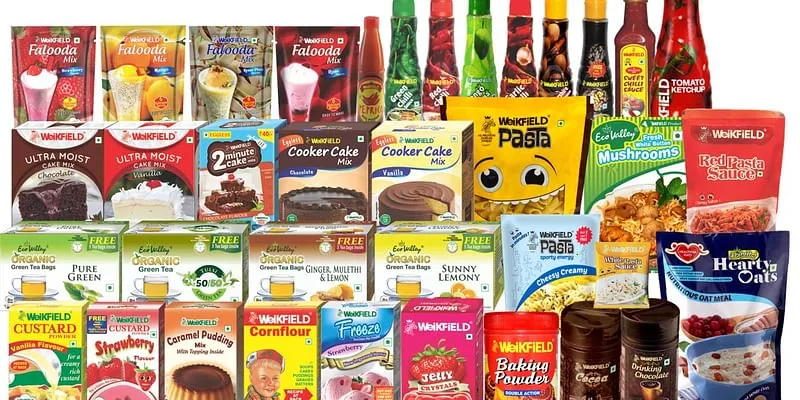Inspired by British brand Brown and Polson, born in India: the untold story of custard company Weikfield
Satpal Malhotra started Weikfield in a small room in Pune in 1956, inspired by British brand Brown and Polson. Today, Weikfield holds a strong space in the Indian household, clocking Rs 300 crore turnover.

Ashwini Malhotra, Managing Director, Weikfield Foods Pvt Ltd
The coronavirus pandemic has inspired a lot of people to indulge in baking – from bread to cakes, and more.
Although offline shopping had a setback since the first nationwide lockdown was announced in March, baking products saw a soaring demand, flying off the retail shelves. One of the brands reaping these benefits is Weikfield.
With a legacy of over 60 years, Weikfield was started in a small room in Pune by Satpal Malhotra in 1956 with his two younger brothers. In fact, the company is one of the first Indian players to have introduced custard powder.
In an interaction with SMBStory, Satpal's son Ashwini Malhotra, the company's Managing Director and second-generation entrepreneur, tells us how his father’s struggle in the post-independence era, and his strong business acumen even during those hardships, helped him build a Rs 300 crore business empire.
A ‘Made in India’ custard powder
In the 1930s, Ashwini’s grandfather had a department store in Rawalpindi but passed away at a young age. Ashwini’s father Satpal, who was just 15 at the time, took over the business. Tragedy struck again in 1947 when the family had to wind up everything and move to India after the Partition.
“My father came to Delhi but the situation was terrible. He made his way to Mumbai and then, finally Pune. He had Rs 10,000 in his pocket and with that money, he started a wholesale business of food,” Ashwini says.
In the course of his business, in the 1950s, Satpal came across Brown and Polson custard powder, a UK-based brand that was widely gaining prominence in the Indian market. The product caught his attention and he wanted to try it out at home. As it was a new product, he didn’t know how to prepare it, but after two-three attempts, succeeded and found it delicious.
Ashwini says, “The whole family liked it. But, when they read the back of the packet, they saw that the ingredients were familiar and easy to get. They were already not liking the wholesale business much and it didn’t long for them to make a shift.”
Satpal, along with his brother and sister-in-law, bought all the ingredients and started making custard powder at home. Eventually, they launched Weikfield Vanilla Custard Powder in 1956, which is still one of the most favourite variants among consumers.

Satpal Malhotra (L) and BR Malhotra (R), Cofounders, Weikfield Foods Pvt Ltd
The product was one of the first ‘Make in India’ variants of custard powder at the time. However, the problem was making people aware of it. Brown and Polson was dominating the market, and it was evident that it would not be easy to capture the attention of customers.
Ashwini says, “It was difficult to compete with an already existing strong product but there was a gap my father saw. You see, we need only a few spoons of custard powder at a time, and Brown and Polson was selling packets of 1lb (450 gm). My father decided to introduce affordable packs of 100 grams.”
Satpal’s strategy blew up the market and customers soon flocked to Weikfield’s custard powder.
Diversifying the offerings
Over time, Weikfield became a household name. The brand launched various custard flavours like mango, strawberry, and butterscotch, among others. In 1981, Ashwini joined the business at the age of 22.
For a long time, the company was only selling variants of custard powder. However, with the changing consumer behaviour and growing demand, Weikfield soon ventured into other products. It launched sauces and dips in 1997, and came up with a healthy food brand Eco Valley in 2006, which is well-known for its green tea.
Recently, Weikfield launched a range of pasta and oats that the company is importing from Australia, Ukraine, Canada, and other countries. However, the raw material for its products is mostly sourced locally, except for international flavours.
At present, Weikfield has three manufacturing plants, two located in Pune and one in Himachal Pradesh. Its manufacturing units in Pune are solar powered.
The company today caters to over 60,000 retail stores, including Reliance, More, Nature’s Basket, Foodhall, etc. It has a distribution network of over 900, covering more than 400 towns directly. Weikfield also exports its products, mainly to the Middle East, West Africa, and the UK.

Weikfield's product portfolio
Recently, Weikfield acquired pasta and macaroni brand Chef’s Basket without any outside investment.
“My father passed away in 2013. He used to tell me one, 'apne chaadar mein he khelo’ [operate within your own means] and I have always followed his advice. That's how we've been able to stay debt-free. Every week, we have a cash-check of the past week and plan our strategy to not undergo any loss,” Ashwini tells SMBStory.
He believes that entrepreneurs today want overnight success, and says, “They must understand that it takes hard work and struggle. Cash is king, and one must understand how and when to use it.”
Surge in demand during lockdown
Traditionally, around 20-25 percent of Weikfield’s sales is in the HORECA segment and the remaining from the consumer front. However, this changed as COVID-19 took over the country.
As people were forced to stay indoors for their safety, baking became the new fad. The increase in the demand during COVID-19 lockdown came as a surprise to the company. When production lines across industries were shutting down, it was the opposite for Weikfield.
Ashwini says, “We were surprised to see that our demand pattern was reversed and 95 percent of our demand share started coming from the consumer front and only five percent from HORECA. We had a piled-up inventory and so we were able to keep up with the demand during the early days of the lockdown.”
Challenges and the way ahead
One of the major challenges Weikfield is dealing with is making millennial consumers aware of the brand as it does not adequately invest in brand communication.
“While our brand has very strong equity among people over 35, connecting with the millennial audience is our next big challenge,” Ashwini tells SMBStory.

Weikfield's headquarters in Pune
The other challenge that the company sees is competition from larger MNC players in some of the other categories like sauces and dips.
Weikfield plans to win this segment by winning the consumer, and by introducing niche products through continuous product and marketing innovation and building strong relationships with channel partners.
Talking about the future plans, Ashwini says that the company is focussed on product innovation and development. The company may soon come up with new products or newer variants in the existing ranges.
In the coming months, Weikfield aims to create strong brand communication to win the market.
Edited by Saheli Sen Gupta










